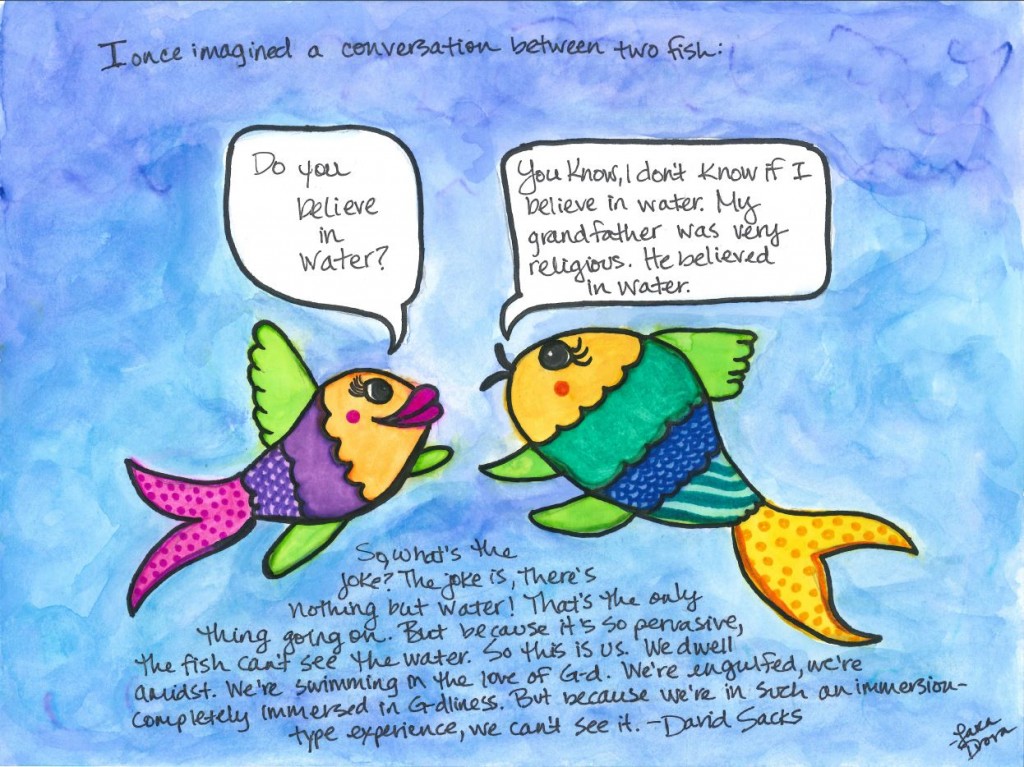
(Left, at my home. Right, in Tel Aviv, Israel.)
Every morning, I have a pow-wow with Hashem. We talk about anything, it’s all fair game. We’re close. I’m pretty sure my picture is on His fridge.
The idea of talking to Hashem in your own words, a Jewish practice known as hitbodedut (HEET-boh-deh-doot) first came across my path via the musical Fiddler on the Roof. Growing up, my parents took my brother and I to New York just about every year for a Broadway theater binge: 5 shows in 4 days. We saw Fiddler starring Topol as Tevye during one of these trips. I was 10 years old and the idea made sense to me.
Throughout the show, the character Tevye candidly converses with Hashem. He pours his heart out, questioning, praying, debating and wishing aloud, in his own words. A two-way street, He asks Hashem questions and listens for answers.
Tevye’s hitbodedut plays a central role in the show because it’s so quintessentially Jewish. One of the few religions in which man engages directly with Gd without an intermediary, Jews have nourished deep, personal, one-on-one relationships with Hashem for thousands of years.
You can see where this is going. I too chat with Hashem regularly, Tevye style, both during my morning connection and throughout the day, formally and informally, about matters big and small.
My hitbodedut shows up in different ways. Some days, I talk aloud (though, usually in a whisper). Other times, I speak silently in my head, the practice taking on a meditative quality. When my thoughts insist on wandering, I write in my journal, often posing questions, and asking Him to answer me through my pen.
Creating time and space for Hashem invites the infinite into the limited. It grants access to what was, what is and what will be. I’m regularly amazed at the insights and answers I receive. The line is always open.
Share This PostFollow Me

